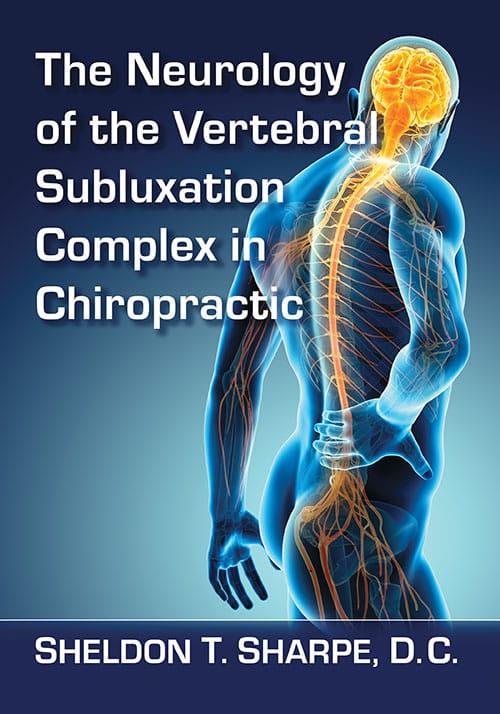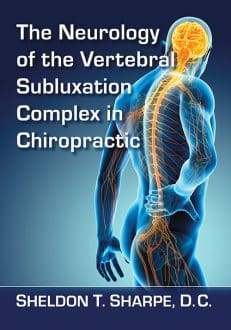The Neurology of the Vertebral Subluxation Complex in Chiropractic
$49.95
In stock
About the Book
The foundation of chiropractic care has always been the relationship between the musculoskeletal system and the nervous system. The understanding of this relationship has become more sophisticated and we now realize that the integrity of the human frame and its ability to move as designed can have implications in pain perception, muscle control, coordination, sleep, internal organ function, and immune response. This book provides an in-depth review of the ways in which abnormal movement in the musculoskeletal system (particularly the spine) will result in altered nervous system function and the potential for poor health.
About the Author(s)
Bibliographic Details
Sheldon T. Sharpe, D.C.
Format: softcover (7 x 10)
Pages: 303
Bibliographic Info: 173 photos, glossary, bibliography, index
Copyright Date: 2021
pISBN: 978-1-4766-7917-4
eISBN: 978-1-4766-4028-0
Imprint: McFarland
Table of Contents
Preface 1
1. The Vertebral Subluxation Complex and the Chiropractic Profession 3
2. Models of the Vertebral Subluxation Complex 9
3. Components of the Vertebral Subluxation Complex 15
4. Homeostasis 23
5. The Receptor 28
6. Neuron Fiber Types and Spinal Nerves 53
7. Anatomy of the Vertebral Subluxation Complex 72
8. Local Tissue Consequences 87
9. The Spinal Cord 105
10. Tracts of the Spinal Cord 112
11. The Afferent Tracts 114
i. The Dorsal Column and the Medial Lemniscus 114
ii. The Spinothalamic Tract 117
iii. The Posterior Spinocerebellar Tract 121
iv. The Anterior Spinocerebellar Tract 123
12. Proprioceptive Input to the Central Nervous System 126
13. Pain and Nociception 143
14. The Autonomic Nervous System 171
15. The Reticular Formation 178
16. The Vertebral Subluxation Complex and Sleep 183
17. The Efferent Tracts 191
i. Pyramidal vs. Extrapyramidal 191
ii. The Lateral Corticospinal Tract 194
iii. The Vestibulospinal Tracts 196
iv. The Reticulospinal Tracts 200
v. The Rubrospinal Tract 204
18. Spinal Reflexes 205
19. The Motor System 222
20. Sensory and Motor Integration 250
21. The Neurology of the Wellness Paradigm 254
22. Neurodegeneration 264
23. The Vertebral Subluxation Complex and the Immune System 271
Glossary 283
Chapter Notes 287
Bibliography 291
Index 293





